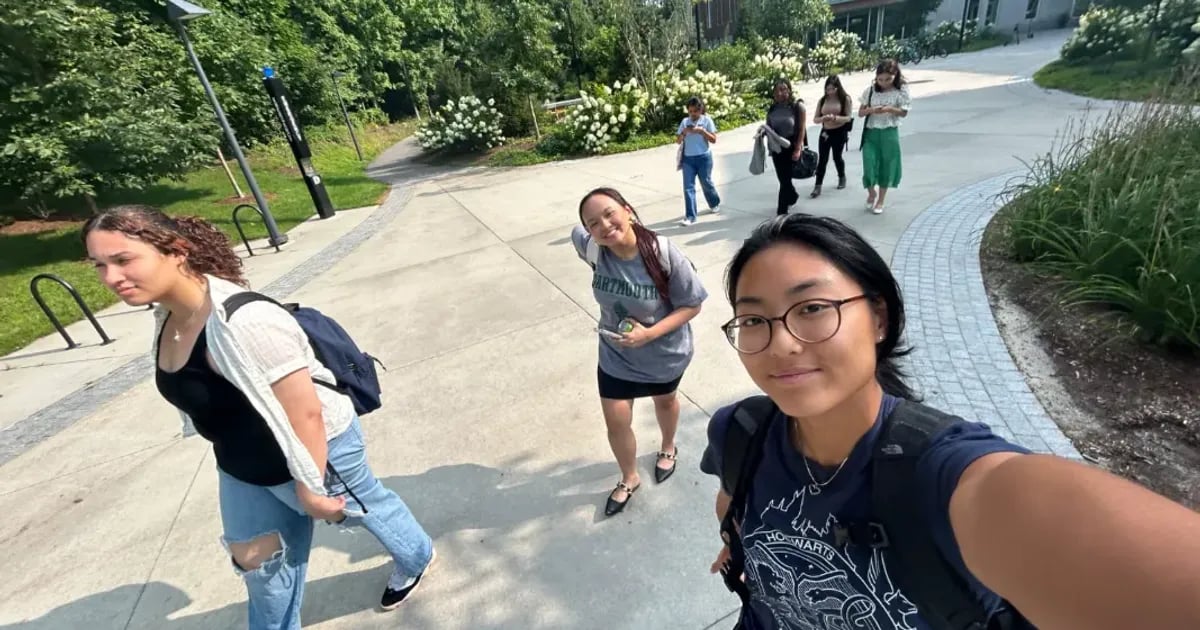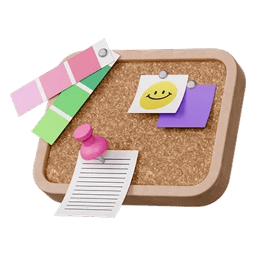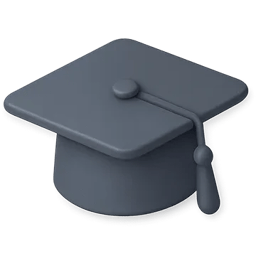How It All Began: Decision of Studying Abroad
My name is Angelica. I grew up in Bali, where I was exposed to the international community. I attended high school in Jakarta, which is on a completely different island. I got a chance to study at an international school with a full-ride scholarship, and I thought, "Oh, you know what? There are so many things I can learn from this international community." I feel that studying abroad opens up a lot of new perspectives and opportunities. I decided to study abroad because I think it is far more achievable and, I guess, cheaper if you apply for scholarships. There are numerous scholarships out there to apply for, and compared to attending a public school in Indonesia, which would cost me a lot of money, I would not have the same experience. So that's why I decided to study abroad to gain different experiences, and financially, it is more reasonable for my family to send me abroad because I receive a scholarship rather than having them pay.

High School Experience and Exposure to the International Environment
Back in 2017, my school, Jakarta Intercultural School (a private international school in Jakarta), always offered scholarships for students from Jakarta. However, in 2021, they opened it to all Indonesian students. At that time, I was in 10th grade, and classes were online. I was looking for other educational opportunities because I felt I just couldn't do online school anymore. So I applied for that scholarship, which was like my last shot, because after 10th grade you cannot apply for it. I applied, went through several interviews and tests, and got in. I had to repeat 10th grade, so my progression in the school year was delayed. However, I'm so grateful that I was able to move from a public school to an international school and repeat that grade to have a smoother transition. The scholarship covered my tuition, obviously, and it covered my homestay. It was not a boarding school, so I lived with a host family because it was not feasible to live alone (I lived with the principal, and it was an interesting experience because I truly felt like I was his daughter), and it also covered transportation. I also received free lunch there. It is basically a scholarship for students who are not financially able to afford attendance at an international school. Usually, they accept students from public school backgrounds. I will tell you more about one thing, and I will also ask some questions that interest me because, in that way, I can open up some areas that you usually don't speak about. With that, you can discuss them as well.
High School Curriculum
My school was interesting because it used to cater to embassy kids from America, so it was like an American school. But I think later they opened it to everyone. Now, they have the AP curriculum, which is the American curriculum, and we also use IB. So, we have both AP and IB. I took AP during my first year there. In 10th grade, I took one AP course, which was AP Human Geography. I thought it was interesting, but I learned that I didn't like the way the AP program teaches; it's just a lot of memorization and multiple-choice questions. So in 11th grade, when I could choose IB, I decided to do the full IB program for 11th and 12th grades.
Balancing the IB: Subjects, Passions, and a Personal Statement that Shines
My subjects weren't very science-focused, so it wasn't too difficult to achieve a score of 44. I took English HL, Economics HL, Indonesian Literature HL, Business HL, Math Analysis SL, English Language and Literature SL, and Environmental Systems and Societies SL. I would say my subjects helped me during the admission process. Here's a funny thing about me: you often hear that for the Common App, you need to write a compelling story with good storytelling skills. I didn't do that. Instead, I used my essay from UCAS, which was very academic, for the Common App because I didn't have time to write a new one. In that essay, I included a lot of academic insights from my IB classes, discussing what I learned in Economics, Environmental Studies, and Business. I talked about how organizations work and expressed my interest in the non-profit sector, touching on topics like bureaucracy and all the experiences I had. Reflecting on my essay, I feel it portrayed me as someone who genuinely enjoys learning, especially since I applied mostly to liberal arts colleges.

Your essay doesn't have to be beautiful; I didn't use fancy language or elaborate diction. It wasn't storytelling. As I said before, I sent my UCAS Statement of Purpose as my Common App Personal Statement, so it just discusses why I want to attend the school, what my hopes are, what I plan to achieve, and how I will use that knowledge later. It showcases me as a person and my goals. It shows that I'm not just going to this school for its name, but because I appreciate the opportunities and activities it offers. You should just be yourself. Many college applicants feel pressured to prove themselves, but it's not about proving yourself. If you apply to highly selective universities with low acceptance rates, there will be thousands of valedictorians and thousands of people with 45 in their predicted IB scores. Prove to them that you are different; you're not just a high test score, but a person with passion. That's a really big tip for you. I guess it gives them an idea of how I wanted to take different classes and different subjects. So, I guess that essay worked. But I don't want to say that experience helped me in the essay because I was actually aiming for the UK.
The Numbers that Matter: GPA, DET, IB, and SAT
Honestly, my test scores were not great. I took the SAT once and scored barely above 1300 in 11th grade, just before my senior year. I realized that I wouldn't have time to study for the SAT because of the International Baccalaureate (IB) program and all the papers I had to complete. Therefore, I chose to apply as test-optional since that option was available during my year. I decided I wouldn't apply to schools that didn't have a test-optional policy. For instance, I think MIT removed the test-optional policy early, but I didn't apply there anyway. I did take a Duolingo English Test, but it didn't go well; I scored 135 when the required minimum was 130, and I hadn't studied for it. As for my IB predicted grade, I was predicted a score of 44 out of 45 but received a 43, which was still acceptable. My GPA is somewhat unique because my school uses a scale of 4.3, and I received a 4.18, which is quite good.
Beyond the Classroom: My Passion Projects and Extracurricular Adventures
I think one of my two big extracurriculars would be research and participation in a lot of community service and non-profits. I always wanted to do something related to sociology or education, so I conducted research. I actually started doing research back when I was in middle school, in eighth grade. Since I was in public school, I have been doing research. I did a little about education, a bit about environmental studies, and also some policies related to environmental studies. After that, I participated in the Pioneer Research program and conducted research with a professor from Colgate University in America, which was also about environmental studies. People thought I was going to pursue environmental studies, but no, you can do whatever research you want and choose a different major because what's important about research is your skills: your writing skills, critical thinking, and the way you discuss the findings.
I have a lot of social non-profit experience. I worked at Impactional, a global non-profit founded by two girls, one of whom is now at Columbia University, while the other is in Turkey. Additionally, I worked with several local non-profits that focus on education. I also founded a club at my high school to provide scholarships for college students. I guess that's a significant part of what got me into different universities.
Honors and Awards Along the Way
I believe that honors are not a big deal, but I do have five awards that I listed. I put my scholarship as my number one because it is a highly selective full-ride; about 500 students applied, but they only accepted three. I see that as a significant achievement for me, so I ranked it first. For my second, third, and fourth awards, I included a research competition award. As I said, I have been researching since middle school, so I've participated in a lot of conferences, and I included that in my honors and awards. My last award is a school-based recognition, where I was named an outstanding student in 11th grade, so I included that as well.
However, I believe that awards from school don't matter as much when you apply to a big school. Most of my friends were valedictorians, whereas I was not. It doesn't make much difference to have academic honors or awards from your school. You would be competing with valedictorians who probably have more school awards than you. I think it's more important to showcase your interests, like my focus on research, so I emphasized that in my application.
Dream Schools and Tough Choices
At my school, I was limited to applying to only 10 universities, but five universities in the UK counted as one. I applied to Cambridge, Edinburgh, Bristol, KCL, and UCL in the UK. I was aiming for Cambridge because, you know, it's Cambridge. Then I applied for a scholarship that was open only to students from Asia. I got an interview for the scholarship, but I don't know why they rejected me. And because Cambridge was my only shot at a full ride, I kind of abandoned the idea of going to the UK, even though I got accepted to Edinburgh, Bristol, and KCL. Then I had the University of Toronto and British Columbia for Canada; they both had their own scholarship applications, and their deadlines were a bit later for the scholarships. So, I only applied to the schools first.

Then I applied to many universities in the US. I applied to Dartmouth for Early Decision. After that, I applied to Vanderbilt, Williams College, the University of Wisconsin-Madison, and Wesleyan University. The last one I wanted to apply to, if I got rejected from everything, was Duke. However, I did not start that application because I got into Dartmouth.
Dartmouth Supplements
There was one question about "Why Dartmouth?" I expressed my desire to learn a variety of things and modify my major, which is something Dartmouth offers. I mentioned that I wanted to be a part of the King Scholarship program because it's a great program where we learn about poverty and social non-profits, and we attend several conferences. Last month, I actually went to New York for the King Scholarship Program, and it was really cool. I also talked about how I appreciate the values that Dartmouth has. When I came here, there were pros and cons about Dartmouth, but overall, I could see myself going here compared to other large schools.
There were two different short questions with different prompts. In the first one, I talked about where I grew up and how it shaped my identity and personality. I discussed how I grew up in a small community where people struggled to meet their needs, and how that shaped me to be resilient and how I wanted to make a difference in my small community. The last question was about how I help people create change, so you can see how it's all connected. I guess that's also one tip: do not just pick short answers or essays that are easy, but choose prompts that can reflect your identity.
In the last question about creating change, I talked about my service club and community service, but I also mentioned how I was not a big change-maker. I did not receive the Diana Award or anything, but creating change doesn't mean you have to win an award. I stated that I do this not because I want an award, but because I want to help people. I think that's a mistake that a lot of colleges make; if you apply to Harvard, they assume that if you do community service, you must have a big award like the Diana Award or something. But you don't have to, and I feel like that's what I wanted to convey to them: that even people who do not receive this kind of award can be change-makers.
Funding the Dream: Financial Aid and the King Scholarship
Dartmouth has a full scholarship called the King Scholarship. On top of that, I currently receive about $10k to do my own things, like personal enrichment. It's not exactly a stipend; we do get stipends, but the $10k is a part of our scholarship that I can use across my four years. For example, if I want to do a summer program at another school, I can use that fund, or if I want to study abroad and need more money, I can use that fund. Basically, it's all about personal enrichment. So, it was kind of a big deal for me, and for my personal development, too. And that's why I really love this school. If you go to Dartmouth, they're very supportive in terms of financial aid and student-professor relationships. For example, I go to lunch with my professors, so it's very nice. I love small colleges, and I think I realized that when I was applying. I guess when I applied to Cambridge, it was just because of the name of Cambridge, not because I really wanted to go there. And now I see how small schools are actually really good.

Tips for Future Applicants
If you're an IB student, then make sure that you have high predicted grades. After that, if you get accepted to college, what happens with your predicted grades compared to your actual scores doesn't matter. Unless you fall significantly short in terms of points—well, my points dropped slightly, but I know a lot of students who applied from IB schools and their scores dropped by three points, and it didn't matter. I do recommend aiming for above 40, but if you take harder classes like HL Physics and Math, then, you know, if you can't quite get to 40, at least aim for 35 and above. That would be a great score because I believe American colleges value IB more than other curricula since they know how rigorous it is. It is like a college course, like writing college papers.
Also, I'd say if you can take standardized tests, do so, especially if you're coming from a school that did not offer this curriculum. It provides them with a good comparison of your academic skills and shows that you are committed and want to study abroad; that's why you take these standardized tests. It indicates that you are a person who is well-prepared. Of course, if you can get a high score, that would be great, but even if you can't, that's fine because, especially in the US, your essays and recommendations help a lot. So, make sure that you have good extracurricular activities. This doesn't mean you must do various activities; I only did two significant things, and I don't think colleges need more well-rounded students because they already have athletes and people who are really into finance. You don't have to be into finance or sports, you just have to be yourself and focus on one thing you are truly passionate about and reflect that in your essay.
Life at Dartmouth: Learning, Growing, and Thriving
A funny thing about college is that you apply for whatever major, but once you get in, you might be undecided. I applied as a sociology major, but once I got here and took a class last term in the education department, I just loved education — learning and development. So now, I want to study cognitive science and a bit of neuroscience. You can apply for whatever major, but in the end, people will change their minds. You will see how crazy it is: there will be thousands of students in the economics or government departments, and no one actually goes into sociology. It's kind of like that because everyone here wants to go into consulting. People just change their minds and choose economics as their major.

Looking Ahead: Dreams, Goals, and the Road Beyond Dartmouth
I hope to work a little, either in the States or somewhere around the world — not back in Indonesia just yet. So, I want to work for maybe one or two years, and then I'm planning to pursue my Master's. I actually hope to do my Master's in Europe because I want to get a taste of how education in Europe compares to America. Honestly, I don't really know what kind of work I will do, but I know for sure that I love learning, education, development, and social work—like non-profit organizations. I feel like I want to work in a non-profit organization in the US or maybe an international organization. With that experience, I believe it will better prepare me for my Master's, so I will know what I want to do and what I want to improve.








